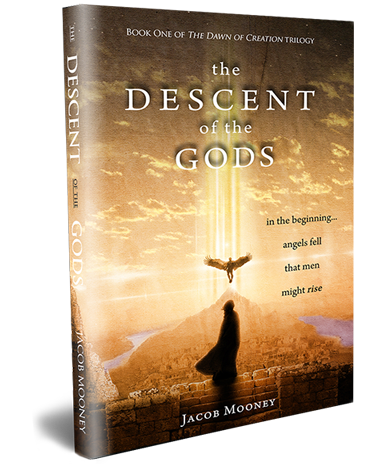
Kaspars Ozolins – a research associate at Tyndale House in Old Testament and the Ancient Near East – writes for John Piper’s website a fairly detailed look at the concept of the “divine council” in his article for Desiring God.
In “The Divine Council,” Ozolins tackles the references to heavenly beings scattered throughout the Old Testament, helping to distinguish the biblical concept from the pantheon-driven mythology of the ancient Near East.
Mainstream secular scholarship argues that passages hinting at the divine council theme are remnants of the original polytheistic cult of Yahwism, the religion peculiar to the ancient Israelites. In particular, it is asserted from archaeological evidence that Yahweh was worshiped alongside his consort, Asherah.
Kaspars Ozolins, The Divine Council
Sons of God: Unveiling a Mysterious Figure
Beyond familiar designations like angels and cherubim, Ozolins compares the enigmatic term “sons of God” (Hebrew bnê hā’ĕlōhîm) to the Ugaritic expression banū ’ili (“sons of ’Ilu,”), highlighting the potential connection to non-human deities in other ancient cultures.
Beyond these more familiar categories is an additional term that may not be as apparent to students of the Bible: “sons of God” (Hebrew bnê hā’ĕlōhîm). It appears to be related to the equivalent Ugaritic expression banū ’ili, “sons of ’Ilu,” a descriptor for the various non-human divinities in their pantheon. We can examine its occurrence in a few biblical passages.
Kaspars Ozolins, The Divine Council
Genesis 6: Unraveling the Mystery of the Nephilim
Ozolins focuses on key passages, particularly Genesis 6, where the “sons of God” intermarry with the “daughters of men.” He acknowledges the interpretive challenges surrounding this passage but proposes a compelling argument, supported by references in Jude and 2 Peter, that these “sons of God” are not human descendants of Seth, but rather fallen spiritual beings – angels. This interpretation paints a disturbing picture of an unnatural union between angels and humans, leading to the birth of the Nephilim, described as “fallen ones” in Genesis 6:4.
Addressing Objections and Clarifying Nuances
While acknowledging potential objections to this interpretation, particularly from Jesus’ teaching in Matthew 22, Ozolins offers a nuanced perspective. He suggests that Jesus’ statement about angels not marrying in the resurrection doesn’t necessarily negate the historical possibility of such an event occurring as described in Genesis 6.
The larger context of the article
I encourage you to check out the full article about the ‘sons of God’ on John Piper’s website, as the author dives into more detail than most on the subject of the divine council and the connections to pagan myths. However, the conclusion is that “It is also important to understand that God, although he maintains a divine council, is not in any way subject to it, but is in fact ultimately sovereign over both it and the rest of his creation.”







